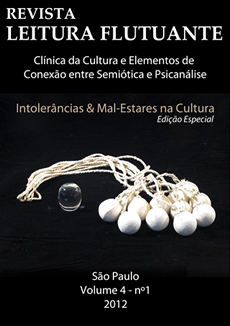A lacanian approach to Shakespeare’s sonnets: love, desire and phantasy
Palavras-chave:
Desire, love, homosexualism, phallus, truth, Shakespeare’s sonnetsResumo
Shakespeare’s a hundred and fifty-four sonnets demonstrate variations in theme: sonnets from one to a hundred and twenty-six are addressed to a young man and the remaining sonnets are addressed to the Dark Lady. The sonnets, addressed to the young man are thought to be praising an upper-class patron yet their bawdy language evokes homosexual associations. According to Lacan people cannot express what they want in language and desire is conneted with language (Sarup 13). In the case of the sonnets the reader may aquire that it is the young man the speaker favors, the young man is reduced by the speaker to an object which is the Dark Lady because the speaker wants to possess the beloved, the young man. However, the freedom of the loved one cannot be possessed. Lacan calls love a feeling between sadism and masochism (Sarup 36). Thus, the speaker goes through experiences of sodomy which are beyond conventions of Petrarchan discourse. The speaker’s desire exceeds demand and cannot be fulfilled. Desire is also considered to be a kind of recognition (Sarup 32) by Lacan the speaker in the sonnets also desires to be recognized by the addressees. In terms of Lacan’s interpretation of desire, Shakespeare’s sonnets outstand in the sixteenth century as a literary form, as far as unconventional themes of desire and demand for sexual intimacy are concerned. In this presentation sonnets 20, 138, 144, 147 and 151 will be analysed with respect to Lacanian theory and terms such as, desire, phallus, love, phantasy, truth and imaginary register.
About the Author:
Elif Derya Şenduran is a graduate of English Language and Literature Department of Ankara University. She also holds an m.a. in English Language and Literature from Hacettepe University. At the moment she is a phd student in English Literature at Middle East Technical University.
Métricas
Downloads
Como Citar
Edição
Seção
Licença
Proposta de Política para Periódicos de Acesso Livre
Autores que publicam nesta revista concordam com os seguintes termos:
- Autores mantém os direitos autorais e concedem à revista o direito de primeira publicação, com o trabalho simultaneamente licenciado sob a Licença Creative Commons Attribution que permite o compartilhamento do trabalho com reconhecimento da autoria e publicação inicial nesta revista.
- Autores têm autorização para assumir contratos adicionais separadamente, para distribuição não-exclusiva da versão do trabalho publicada nesta revista (ex.: publicar em repositório institucional ou como capítulo de livro), com reconhecimento de autoria e publicação inicial nesta revista.
- Autores têm permissão e são estimulados a publicar e distribuir seu trabalho online (ex.: em repositórios institucionais ou na sua página pessoal) a qualquer ponto antes ou durante o processo editorial, já que isso pode gerar alterações produtivas, bem como aumentar o impacto e a citação do trabalho publicado (Veja O Efeito do Acesso Livre).


